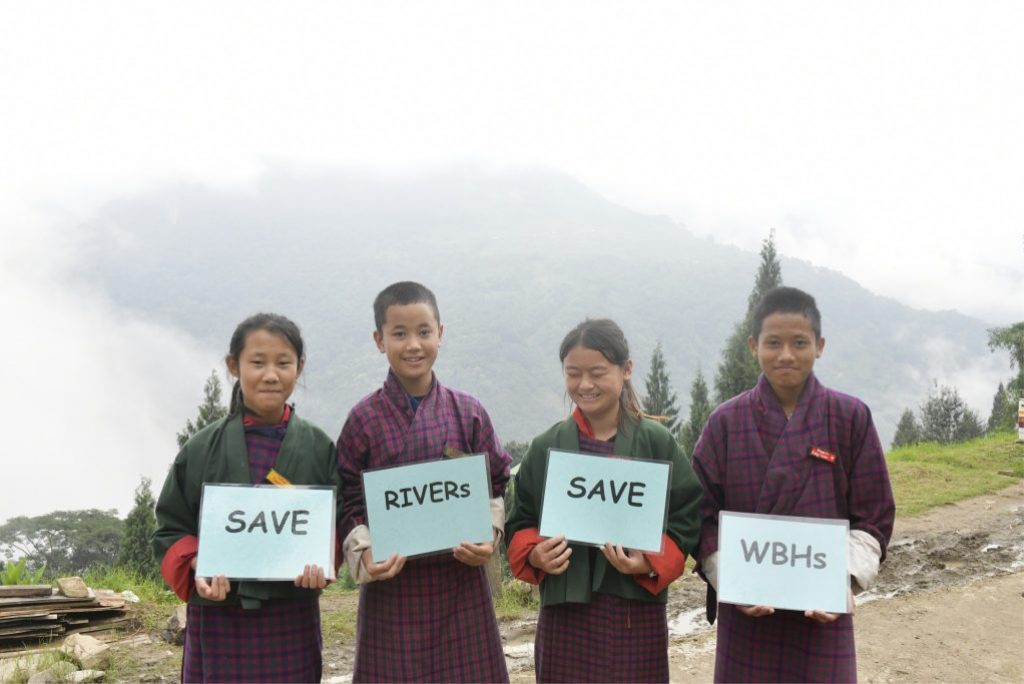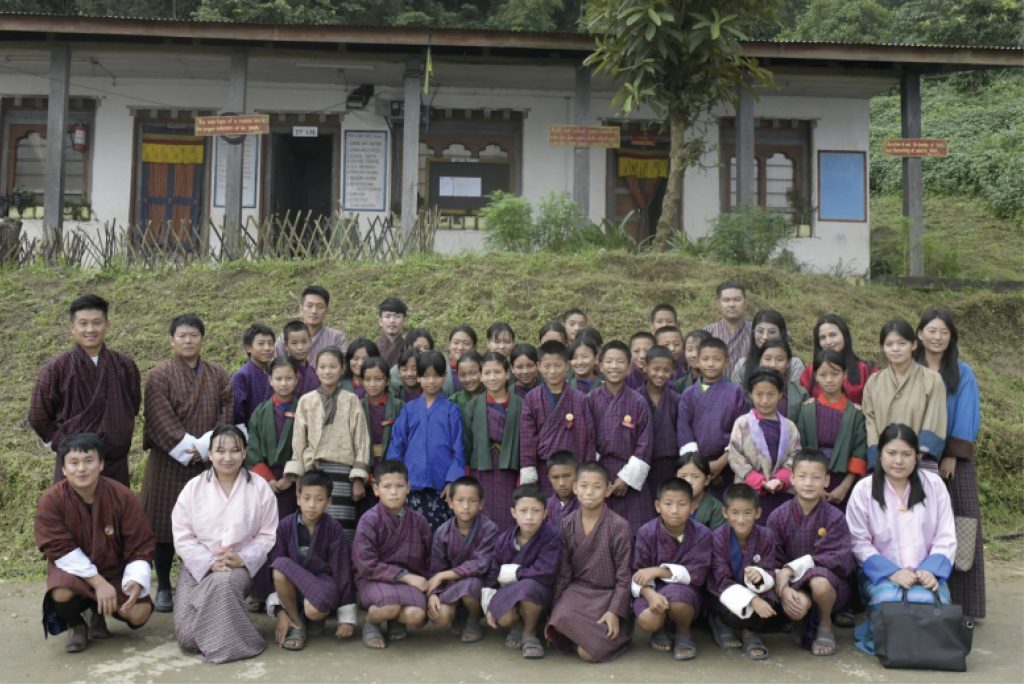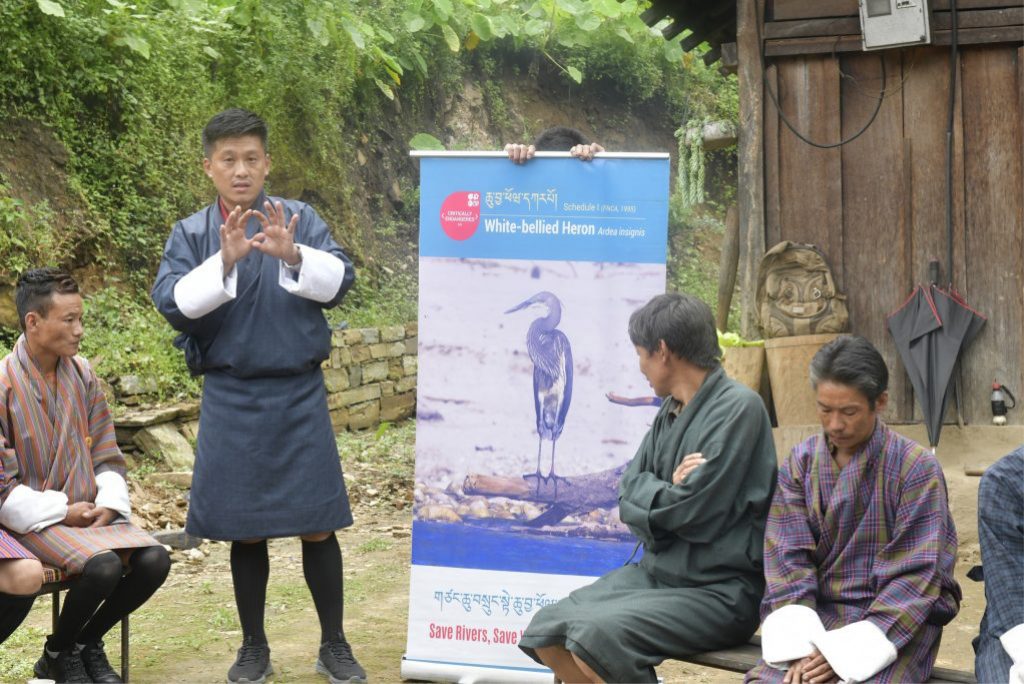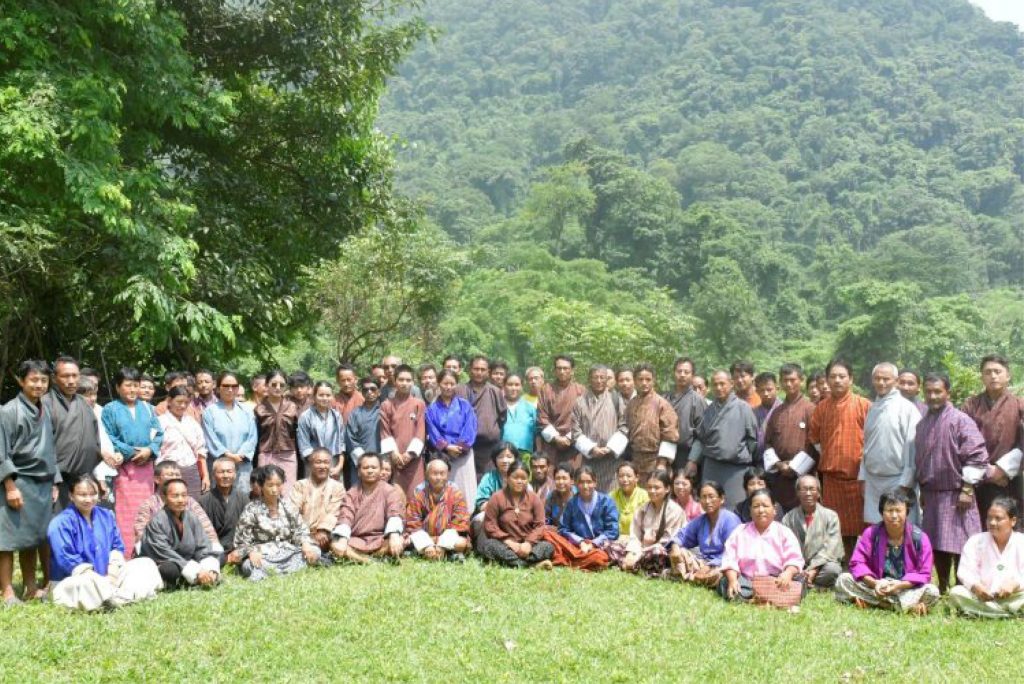314 participants including students were educated on the White-bellied heron (#WBH) and its conservation to the communities residing in the lower Wangchu basin under Chukha and Dagana districts. This community education and awareness program is critical to garner community support and engagement in WBH conservation activities.
The project targets lower Wangchu river basin to explore WBH conservation status, map out potential threats to WBH including its habitats, assess community’s livelihoods and vulnerabilities to establish better understanding of WBH conservation and WBH-human interactions.
In 2021, RSPN team sighted WBH at Piping river (a tributary of Wangchu river) for the first time during a preliminary survey, then during the Annual WBH Population Survey in 2022. This implies that the Wangchu river basin has a great potential as a habitat for WBH to exist and flourish.
This educational program is part of the on-going project ‘𝘼𝙨𝙨𝙚𝙨𝙨𝙢𝙚𝙣𝙩 𝙖𝙣𝙙 𝙈𝙖𝙥𝙥𝙞𝙣𝙜 𝙤𝙛 𝙋𝙤𝙩𝙚𝙣𝙩𝙞𝙖𝙡 𝙏𝙝𝙧𝙚𝙖𝙩𝙨 𝙛𝙤𝙧 𝙒𝙝𝙞𝙩𝙚-𝙗𝙚𝙡𝙡𝙞𝙚𝙙 𝙃𝙚𝙧𝙤𝙣 (𝙒𝘽𝙃) 𝘾𝙤𝙣𝙨𝙚𝙧𝙫𝙖𝙩𝙞𝙤𝙣 𝙞𝙣 𝙒𝙖𝙣𝙜𝙘𝙝𝙝𝙪 𝘽𝙖𝙨𝙞𝙣, 𝘽𝙝𝙪𝙩𝙖𝙣’ funded by Asian Species Action Partnership (ASAP), Singapore.
We extend appreciations to Chhukha Dzongkhag Administration for the continued support and coordination.




Copyright © 2026 RSPN All Rights Reserved